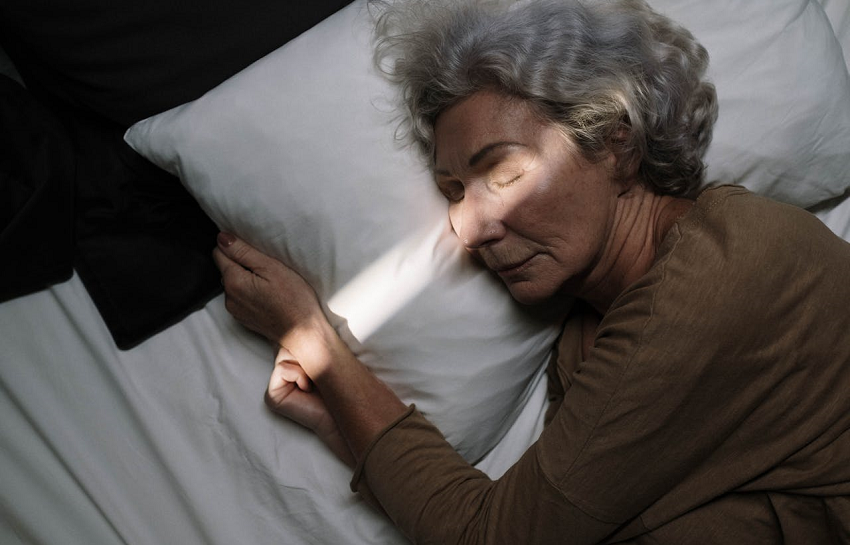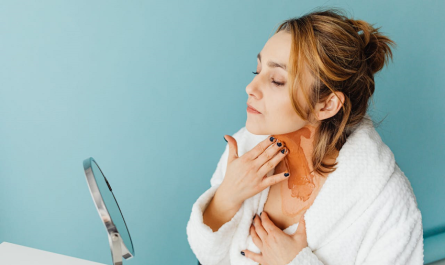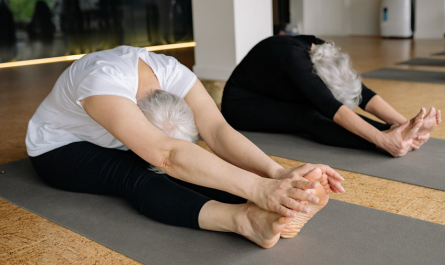The quest for radiant and healthy skin often leads us to explore skincare routines, nutrition, and lifestyle choices. However, one often overlooked factor that significantly influences skin aging is the quality of sleep.
As we age, ensuring a good night’s rest isn’t just crucial for overall well-being but also is helpful in maintaining skin health.
Let’s look at the intricate relationship between sleep and skin aging and offer these five concepts for achieving better sleep:
Understanding the Connection: Sleep and Skin Aging
Quality sleep is essential for the body’s regenerative processes, including those that impact the skin. During deep sleep, the body produces growth hormone, which aids in cell repair and regeneration.
Collagen, the protein responsible for skin elasticity and firmness, is particularly influenced by sleep. When sleep is compromised, the production of collagen decreases, contributing to the development of fine lines, wrinkles, and a loss of skin elasticity.
Impact of Poor Sleep on Skin Health
a. Increased Inflammation: Lack of sleep triggers an inflammatory response in the body, leading to elevated levels of stress hormones like cortisol. Chronic inflammation can accelerate the aging process, causing redness, puffiness, and exacerbating skin conditions such as acne and eczema.
b. Reduced Circulation: Sleep deprivation hampers blood flow to the skin, diminishing the delivery of essential nutrients and oxygen. This reduction in circulation can result in a dull complexion and compromise the skin’s ability to repair and regenerate.
c. Imbalanced Moisture Levels: Sleep plays a crucial role in regulating the body’s moisture balance. Inadequate sleep can disrupt this balance, leading to increased water loss through the skin and contributing to dryness and dehydration.
d. Delayed Healing: Skin healing and recovery from environmental stressors occur predominantly during sleep. Poor sleep quality can impede these processes, making the skin more susceptible to damage and slowing down the resolution of blemishes or wounds.
Tips for Better Sleep as We Get Older
a. Establish a Consistent Sleep Schedule: It is a good idea to aim to go to bed and wake up at the same time every day, even on weekends. Consistency helps regulate the body’s internal clock and improves overall sleep quality.
b. Create a Relaxing Bedtime Routine: Engaging in calming activities before bedtime signals to the body that it’s time to wind down. This can include reading a book, practicing gentle stretching or deep breathing exercises, or taking a warm bath.
c. Optimize Sleep Environment: Ensure the bedroom is conducive to sleep by maintaining a comfortable temperature, minimizing noise and light, and investing in a comfortable mattress and pillows. We should create a tranquil space that promotes relaxation.
d. Limit Screen Time: Exposure to the blue light emitted by electronic devices can disrupt the production of melatonin, a hormone that regulates sleep. It is a good idea to avoid devices with blue screens at least an hour before bedtime to promote better sleep.
e. Mindful Eating: We should be mindful of our food and drink intake, especially in the evening. Consuming heavy meals or caffeine close to bedtime can interfere with sleep. Instead, choose light, easily digestible snacks if hunger strikes before bed.
f. Stay Active During the Day: Regular physical activity contributes to better sleep. We should engage in moderate exercise during the day, such as walking, swimming, or gentle yoga, to promote overall well-being and improve sleep quality.
g. Limit Naps: While short naps can be rejuvenating, extended or late-afternoon naps can interfere with nighttime sleep. Seniors should limit naps to 20-30 minutes and avoid napping too close to bedtime.
Skincare Practices to Enhance Sleep-Induced Skin Benefits
a. Nighttime Skincare Routine: We can optimize our nighttime skincare routine to complement the skin’s natural repair processes during sleep. Using products with ingredients like retinoids, hyaluronic acid, and antioxidants can support skin health and enhance the benefits of restful sleep.
b. Silk Pillowcases: Switching to silk pillowcases can be beneficial as they are gentler on the skin, reducing friction and the likelihood of developing sleep lines. This simple change can contribute to smoother and more youthful-looking skin over time.
Seek Professional Guidance To Address Sleep Disorders
Persistent sleep issues or disorders should prompt sufferers to seek professional guidance. Conditions such as insomnia, sleep apnea, or restless leg syndrome may require specialized interventions.
Consulting with a healthcare provider or sleep specialist can help identify and address underlying issues affecting sleep quality.
The relationship between sleep and skin aging is a dynamic and interconnected one. Prioritizing good sleep hygiene not only supports overall well-being but also plays a crucial role in maintaining healthy and vibrant skin.
By adopting better sleep habits and incorporating skincare practices that align with the body’s natural nocturnal processes, we can nurture our skin from the inside out, promoting a more youthful and resilient complexion.




